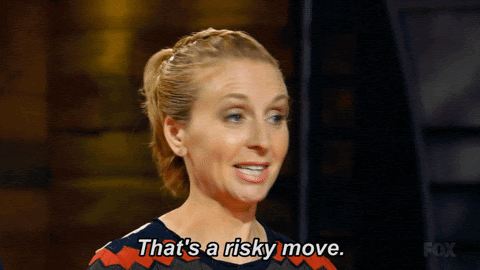Reflections on brand and performance marketing
This week, Airbnb founder & chief exec Brian Chesky ruffled feathers by declaring that the brand will massively decrease performance marketing and increase brand spend. A few quick reflections from us:
- This is all based on pretty standard thinking... right?
If I tried to sum up How Brands Grow, Byron Sharp’s influential book on, er, how brands grow, I’d say: be front of mind. Sharp basically tells us that it’s the brands that customers remember when they think about that category - those that build “mental availability” - that do well. This isn’t just awareness, it’s salience; Sharp talks about brands that “come to mind in buying situations”.
That Airbnb comes to mind in buying situations isn’t surprising, since that buying situation is probably one where you’re looking for “an airbnb” - brand and category have merged. Airbnb have presumably known this for some time, but this week, took it to its logical conclusion.
And yet: ruffled feathers. Why? Performance marketing - backed by vast amounts of graphable data - has done a good job building its own mental availability when it comes to marketing planning. Ever increasing performance spend has become - ever increasingly - the mantra. Yet now, we see the data hasn’t backed that belief up, at least for this brand.
- This comes from the top
That it’s Chesky himself talking about this is interesting. Often - in tech especially - chief execs aren’t in the weeds on marketing strategy. The opposite seems to be true here. Perhaps this has helped Airbnb take the bold view, and avoided the short-termism of internal stakeholder management - which often prefers the solid-looking marketing metrics of performance over the expensive-looking risk-taking of brand work.
- The data comes from a massive real-time experiment - which can be replicated
So brand marketing often struggles to compete in the minds of marketers against performance marketing because it lacks data. In performance, pretty much everything can be measured in actual events like clicks; in brand marketing, it’s all proxies - surveys and the like.
Airbnb last year were forced into running a massive experiment, when lockdowns effectively shut down their business around the world and meant performance marketing didn’t make sense. Doing something like this deliberately might seem incredibly risky for a brand, but the savings - hundreds of millions of dollars, in this case - surely justify structuring tests to really see what channel is driving what result.
- PR is the top of their funnel
“Our marketing plan, therefore, our strategy is the following: a full-funnel marketing approach. The top of the funnel is actually PR,” said Chesky (I’m quoting from Campaign here, link in the intro), “And that's how we really built the brand of Airbnb – more than anything, probably, is PR. Second is brand marketing. We think of brand marketing as education and an investment.”
PR - often for organisational reasons - is undervalued in marketing. Perhaps because Chesky sits at the top he’s got a view of it all, and sees that this outward push into earned media is “actually” - note the slightly surprised tone here - the starting point for the brand-salience-building that follows.
Good brand marketing work can drive PR. The two should work together.
- Their mindset is critical, not cautious
Aibnb’s overall marketing budget is down as a result of this - by quite a lot. But they’re not resting on the strong brand position they’ve created. They’re investing heavily in brand marketing, fully aware that it might not come through with positive ROI - they flag their Olympics sponsorship as a particular risk.
Given the year they’ve had it wouldn’t be surprising to see the budget get reduced a lot more. But this is a plan for growth, not for caution; and one that seems to have taken an honest, critical look at what’s working. With uncertainty around but opportunities everywhere, this can only be the best approach. One suspects that as they learn more, they’ll change the plan again. And this is only a good thing.


